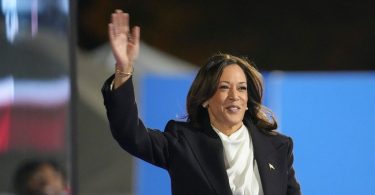When Scottish soccer referee Lloyd Wilson came out publicly as gay in Pride Month 2022, he described the reaction from others as “exceptional”.
That wasn’t what he expected but as Outsports readers will know, the fear of what people will think and say — even in hypermasculine environments like men’s team sports — rarely if ever matches the reality.
Wilson, who takes charge of games in the Scottish Professional Football League (SPFL), used his coming out moment to raise awareness of mental health by working with a charity called Back Onside.
Early last year, the impact he was making was recognized with a Football v Homophobia Award, with Wilson winning in the Scotland category at the event held for the first time at the UK’s National Football Museum in Manchester.
The fifth annual FvH Awards ceremony will be held at the same venue at the end of February but first, nominations are needed in 11 categories to determine who will be shortlisted.
While some are for English, Scottish and Welsh football, there are opportunities for those outside the UK who are involved in LGBTQ inclusion in soccer to be celebrated too.
There is an International Award category — sponsored by anti-discrimination network Fare — while contenders on the Football Media shortlist can also be from anywhere in the world.
“I want to encourage as many people as possible to nominate,” says Wilson.
“It’s so important as it contributes to the visibility of such events and encourages another fantastic attendance.”
Wilson says that he hadn’t realized how big the event was before he got to the venue in February 2023. Hearing his name read out in first place was a proud moment.
“That was something I really didn’t think would happen — I would have worn a proper shirt instead of a polo shirt!” he recalls.
“It was the first time the FvH Scotland award had been made and that meant a lot to both me and my family.”
The FvH Awards are as much for those at the grassroots level of the game as those in professional roles.
The winner in the prestigious Hero category in 2023 was Charlotte Galloway, whose extensive work in Wales encompasses inclusive clubs, fan groups, campaigning and media work.
“It was a real honor to win because I felt like I just do what I do here in Cardiff,” she says.
“I coach football and I provide some pastoral support for people, so to be recognized for all of that was awesome.
“It also helped me a lot with my own self-confidence and made me realize how far that kind of behavior really goes to help people.”
Galloway believes the FvH Awards are appreciated even more because so many LGBTQ inclusion in football initiatives are entirely voluntary.
“It just helps to give back a little bit — awards are a great opportunity to bring together people who might feel quite isolated.
“For example, in Wales, there isn’t as much going on as in England, so it used to feel like you were doing something that was only specific to your club. Luckily, that’s changing.”
In his coming out interview 18 months ago, Wilson described his journey towards visibility as “17 years of living a life that I didn’t want to live”.
He can fully empathize with others in the men’s game who aren’t yet ready to take that next step but he wants to help them get there.
“Football is something that brings so much to so many people’s lives but it can also be a scary place for people to go, for many different reasons,” he adds.
“Knowing I was gay in such a masculine environment was something that often created anxiety for me. I’ve had many conversations about that.
“We need to continue speaking out against inequality and abuse, and deliver education to promote positive change.
“But I can also say that since I’ve come out, my colleagues in football — players, referees, managers — have been absolutely amazing and I thank them for that.”
Highlights of the last 12 months included a Women’s World Cup that was widely seen as the most LGBTQ-friendly major tournament ever, while at grassroots, there were activities like TRUK United FC’s all-transmasculine team playing their first game and an inclusive festival for teams of women and non-binary people called Ball Together Now.
“So much happened in 2023,” says Galloway. “The thing that inspired me the most was the community’s resilience.
“There were a lot of discouraging headlines last year too, but looking back at the Sports Media LGBT+ review and seeing everything that happened… personally, it gives me a lot of strength to keep going.”
Wilson sees evidence of discouragement on his side of the game too, through outdated attitudes that continue to keep gay and bi men in the shadows.
“People who identify as LGBTQ should be supported and encouraged to be visible and live their authentic selves regardless,” he adds.
“I’ve heard things like ‘you’ve said your piece, now move on’. Being LGBTQ is not a choice for a moment — it’s something we must continue to normalize in football with the hope that no one even has to feel anxious or scared in any way just because they’re involved in a sport they enjoy.
“That’s why allies are such important people in helping to create the environment that we’re striving to achieve.”
The Football v Homophobia campaign is marking its 15th anniversary in 2024 and the Awards has become the centrepiece of its annual Month of Action in February, which is also LGBT+ History Month in the UK.
The event is also a great excuse for a big get-together and a party.
“If you’re involved in a football club outside of the likes of London or Manchester, it can feel quite isolating,” says Galloway.
“So making links with other clubs and organizations is really important — we are a community and there’s so much strength in that.
“I encourage everyone to nominate a person or club so that we have as many people there as possible to meet and strengthen our community bonds.”
Nominate now for the Football v Homophobia Awards 2024.







